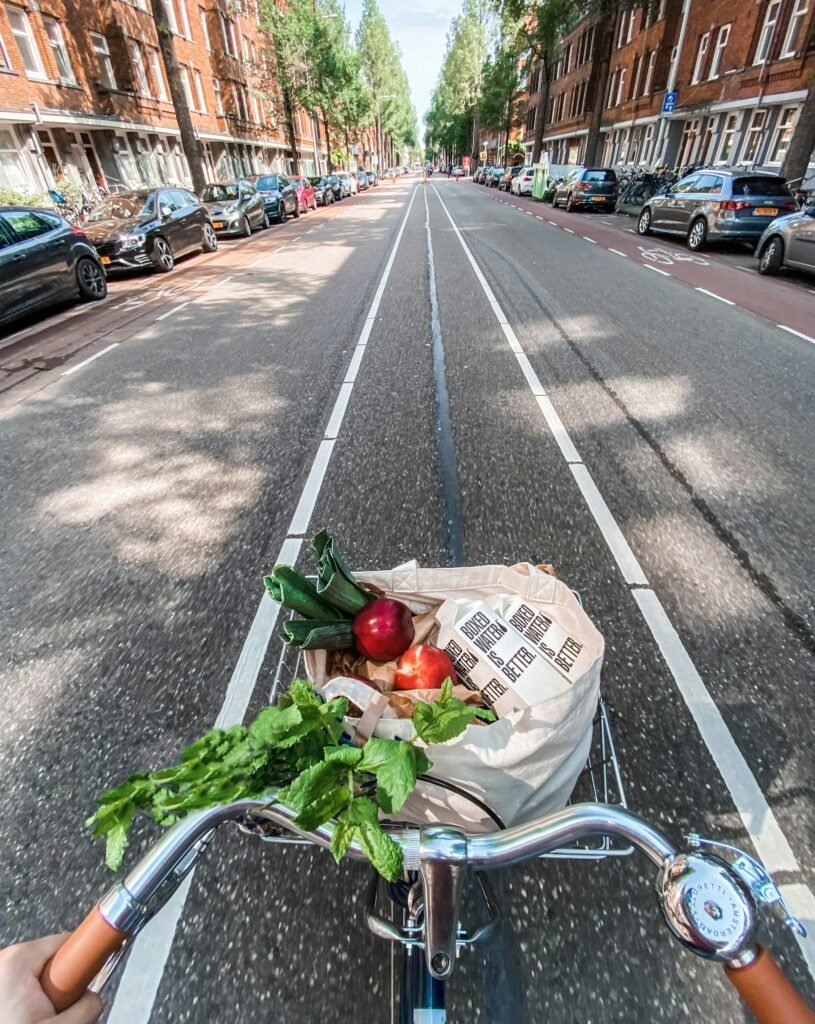Imagine a world where gift card holder production is not only stylish and practical but also sustainable. In an era where environmental consciousness is becoming increasingly important, the concept of sustainable practices in gift card holder production is gaining traction. This article explores the future of gift card holder production and how sustainable practices are revolutionizing the way these holders are made. From eco-friendly materials to innovative designs, discover how the gift card industry is embracing sustainability to create a more responsible and environmentally-friendly future.

This image is property of images.unsplash.com.
Current Challenges in Gift Card Holder Production
Environmental Impact of Traditional Gift Card Holders
Traditional gift card holders contribute to the growing environmental concerns due to their negative impact on the planet. These holders are often made from plastic materials that are not easily biodegradable, leading to excessive waste. Moreover, the production and transportation of these holders result in significant carbon emissions, further exacerbating environmental issues.
Lack of Sustainable Materials
One of the major challenges in gift card holder production is the limited availability of sustainable materials. It can be difficult to source recycled materials and find viable alternatives that are biodegradable. While there is a growing demand for eco-friendly options, the industry still struggles to keep up with the supply and meet the sustainability requirements.
Inefficient Production Processes
Another challenge faced in gift card holder production is the inefficiency of current manufacturing processes. The production of traditional holders involves high energy consumption, leading to increased carbon footprint. In addition, waste management practices are often ineffective, exacerbating environmental concerns. The lack of production optimization further contributes to inefficiencies in the industry.
Emerging Trends in Sustainable Gift Card Holder Production
Use of Eco-Friendly Materials
To address the challenges posed by traditional gift card holders, there is a growing trend towards the use of eco-friendly materials. Recycled paper and cardboard are increasingly being used as alternatives to plastic. These materials can be easily recycled and contribute to reducing the environmental footprint. Plant-based or biodegradable plastics are also gaining popularity, offering a more sustainable option for gift card holders. Additionally, organic fabrics and natural fibers are being explored to create unique and eco-friendly designs.
Design Innovation for Reusability
Design innovation plays a crucial role in the production of sustainable gift card holders. The focus is on creating designs that allow for reusability and multiple uses. Modular designs are being adopted, enabling customers to repurpose the holders for various purposes once the gift card is used. The incorporation of sustainable features, such as detachable components or pockets for additional storage, enhances the longevity of the holders. Moreover, upcycling concepts are being integrated into the design process to encourage customers to transform the holders into new items, reducing waste.
Integration of Digital Solutions
Digital solutions are emerging as a sustainable option for gift card holders. Mobile-friendly gift cards and virtual gift card platforms are gaining popularity, reducing the reliance on physical materials. By integrating gift cards into digital wallets, the need for physical gift card holders is eliminated, resulting in a significant reduction in waste. This shift towards digital solutions not only reduces the environmental footprint but also offers convenience to customers.

This image is property of images.unsplash.com.
Advantages of Sustainable Gift Card Holders
Reduced Environmental Footprint
By adopting sustainable practices in gift card holder production, the environmental footprint can be significantly reduced. The use of eco-friendly materials promotes recycling, reduces waste, and minimizes the carbon emissions associated with production and transportation. This reduction in environmental impact contributes to a healthier planet and a more sustainable future.
Enhanced Brand Image
Companies that prioritize sustainability in their gift card holder production can enhance their brand image. By demonstrating their commitment to environmental responsibility, these companies appeal to the growing environmentally conscious consumer base. Sustainable gift card holders showcase a brand’s values and commitment to making a positive impact on the world, thereby strengthening customer trust and loyalty.
Increased Customer Engagement
Sustainable gift card holders offer a unique opportunity to engage customers on a deeper level. By educating customers about the importance of sustainable choices and showcasing the eco-friendly features of the holders, companies can foster a sense of environmental awareness and responsibility. Interactive and informative packaging can provide customers with valuable information about sustainable practices and encourage them to make conscious choices. Furthermore, by encouraging reusability and recycling, companies can actively involve customers in their sustainability efforts and create a more engaged customer base.
1. Environmental Impact of Traditional Gift Card Holders
Excessive Plastic Waste
Traditional gift card holders, predominantly made from plastic materials, contribute to the growing problem of excessive plastic waste. These holders are often disposed of improperly, ending up in landfills or even polluting oceans and waterways. The accumulation of plastic waste poses a severe threat to the environment and wildlife.
Carbon Emissions from Production and Transportation
The production and transportation of traditional gift card holders result in significant carbon emissions. The energy-intensive manufacturing processes, combined with the transportation of materials and finished products, contribute to the release of greenhouse gases. This adds to the overall carbon footprint and contributes to climate change.
Non-Biodegradable Components
Many traditional gift card holders contain non-biodegradable components, making them environmentally harmful. These components either take a very long time to decompose or never decompose at all, further adding to the pollution and waste problem. The inability of these materials to degrade naturally poses a long-term threat to the environment.

This image is property of images.unsplash.com.
2. Lack of Sustainable Materials
Insufficient Availability of Recycled Materials
The limited availability of recycled materials poses a significant challenge in gift card holder production. While there is a growing demand for eco-friendly options, sourcing sufficient quantities of recycled materials can be challenging. The recycling infrastructure may not be developed enough to meet the industry’s needs, resulting in a reliance on non-recycled materials.
Limited Options for Biodegradable Alternatives
Finding suitable biodegradable alternatives to traditional gift card holder materials is another challenge faced by the industry. While advancements have been made in creating biodegradable plastics and organic fabrics, the options are still limited. The industry needs to explore and develop more sustainable alternatives to reduce the environmental impact further.
Challenges in Sourcing Sustainable Materials
The sourcing of sustainable materials for gift card holders can be a complex process. It requires identifying suppliers who adhere to sustainable practices and ensuring the materials meet quality standards. Moreover, there may be logistical challenges in procuring sustainable materials, particularly if they are not readily available in the required quantities.
3. Inefficient Production Processes
High Energy Consumption
The production of traditional gift card holders often involves high energy consumption. From the manufacturing of raw materials to the assembly of finished products, energy-intensive processes contribute to carbon emissions and environmental degradation. Addressing the inefficiencies in energy consumption is crucial to reducing the overall environmental impact.
Ineffective Waste Management
Inefficient waste management practices in gift card holder production further exacerbate environmental concerns. Without proper waste management systems, valuable resources are wasted, and non-recyclable waste may end up in landfills. Implementing effective waste management strategies, such as recycling programs and waste reduction initiatives, is essential for sustainable production processes.
Lack of Production Optimization
The lack of production optimization in gift card holder manufacturing leads to inefficiencies and increased environmental impact. By optimizing production processes, companies can reduce energy consumption, waste generation, and carbon emissions. Implementing lean manufacturing principles and adopting sustainable practices can significantly improve production efficiency and minimize the environmental footprint.
4. Use of Eco-Friendly Materials
Recycled Paper and Cardboard
Recycled paper and cardboard are increasingly being used as eco-friendly materials for gift card holders. These materials are easily recyclable and can be sourced from post-consumer waste. By using recycled paper and cardboard, companies contribute to the circular economy and reduce the demand for virgin materials.
Plant-Based or Biodegradable Plastics
Plant-based or biodegradable plastics offer a sustainable alternative to traditional plastic gift card holders. These plastics are derived from renewable resources, such as corn or sugarcane, and can break down naturally, reducing their environmental impact. By utilizing plant-based or biodegradable plastics, companies can minimize the negative consequences associated with non-biodegradable plastic waste.
Organic Fabrics and Natural Fibers
Incorporating organic fabrics and natural fibers into gift card holder production adds a touch of elegance and sustainability. Fabrics made from organic cotton, hemp, or bamboo offer a renewable and biodegradable alternative to synthetic materials. By choosing organic fabrics and natural fibers, companies contribute to reducing the environmental impact and promoting sustainable practices.
5. Design Innovation for Reusability
Modular Designs for Multiple Uses
Design innovation plays a vital role in the reusability of gift card holders. Modular designs allow customers to repurpose the holders for various uses, extending their lifespan and reducing waste. By incorporating detachable components or customizable features, holders can be transformed into storage containers, wallets, or even small notebooks, adding value to the customer experience.
Incorporation of Sustainable Features
Sustainable features, such as pockets for additional storage or removable inserts, enhance the functionality and durability of gift card holders. These additional features not only provide practical benefits but also encourage customers to reuse the holders in creative ways. By incorporating sustainable features, companies contribute to reducing waste and showcasing their commitment to sustainability.
Integration of Upcycling Concepts
The integration of upcycling concepts in design is an exciting trend in sustainable gift card holder production. Upcycling involves transforming materials or products into new and improved items with higher value. By incorporating upcycling elements into gift card holder design, customers are encouraged to repurpose the holders creatively, contributing to waste reduction and promoting sustainable practices.
6. Integration of Digital Solutions
Mobile-Friendly Gift Cards
Mobile-friendly gift cards are a convenient and sustainable alternative to physical gift card holders. These digital solutions eliminate the need for physical materials while providing a secure and versatile platform for gift card transactions. With mobile-friendly gift cards, customers can easily access and redeem their cards through their smartphones, reducing waste and promoting sustainability.
Virtual Gift Card Platforms
Virtual gift card platforms offer a seamless and eco-friendly way to distribute and manage gift cards. These platforms allow customers to purchase, send, and receive gift cards digitally, without the need for physical holders. By utilizing virtual gift card platforms, companies can eliminate the production and transportation of physical cards, significantly reducing their environmental impact.
Digital Wallet Integration
Integration of gift cards with digital wallets, such as Apple Wallet or Google Pay, provides a sustainable solution that aligns with the increasing digitalization of transactions. By integrating gift cards into digital wallets, the need for physical holders is eliminated, reducing waste and promoting sustainability. Customers can conveniently access their gift cards through their smartphones, creating a seamless and eco-friendly experience.
9. Increased Customer Engagement
Educating Customers on Sustainable Choices
One of the advantages of sustainable gift card holders is the opportunity to educate customers on sustainable choices. By providing information about the materials used, the manufacturing processes, and the environmental benefits, companies can raise awareness and empower customers to make more sustainable decisions. Educated customers are more likely to appreciate and support sustainable practices.
Interactive and Informative Packaging
Interactive and informative packaging can significantly enhance customer engagement with sustainable gift card holders. By incorporating educational content, interactive elements, and QR codes that provide information about sustainable practices, companies can create an engaging and educational experience for customers. This encourages customers to explore and learn about sustainable choices while enjoying the gift card gifting experience.
Encouraging Reusability and Recycling
Sustainable gift card holders offer a unique opportunity to encourage reusability and recycling. By providing instructions and ideas for repurposing the holders, such as turning them into bookmarks or storage compartments, companies can inspire customers to get creative and extend the lifespan of the holders. Additionally, incorporating recycling information and promoting responsible disposal encourages customers to recycle the holders once they are no longer needed.
In conclusion, the future of sustainable gift card holder production is promising. By addressing the current challenges, such as the environmental impact of traditional holders, the lack of sustainable materials, and inefficient production processes, the industry is moving towards more eco-friendly practices. With the use of eco-friendly materials, design innovation for reusability, and integration of digital solutions, sustainable gift card holders offer numerous advantages. These include reduced environmental footprint, enhanced brand image, and increased customer engagement. By educating customers, providing interactive and informative packaging, and encouraging reusability and recycling, companies can leverage sustainable gift card holders to promote a more sustainable and responsible future.
